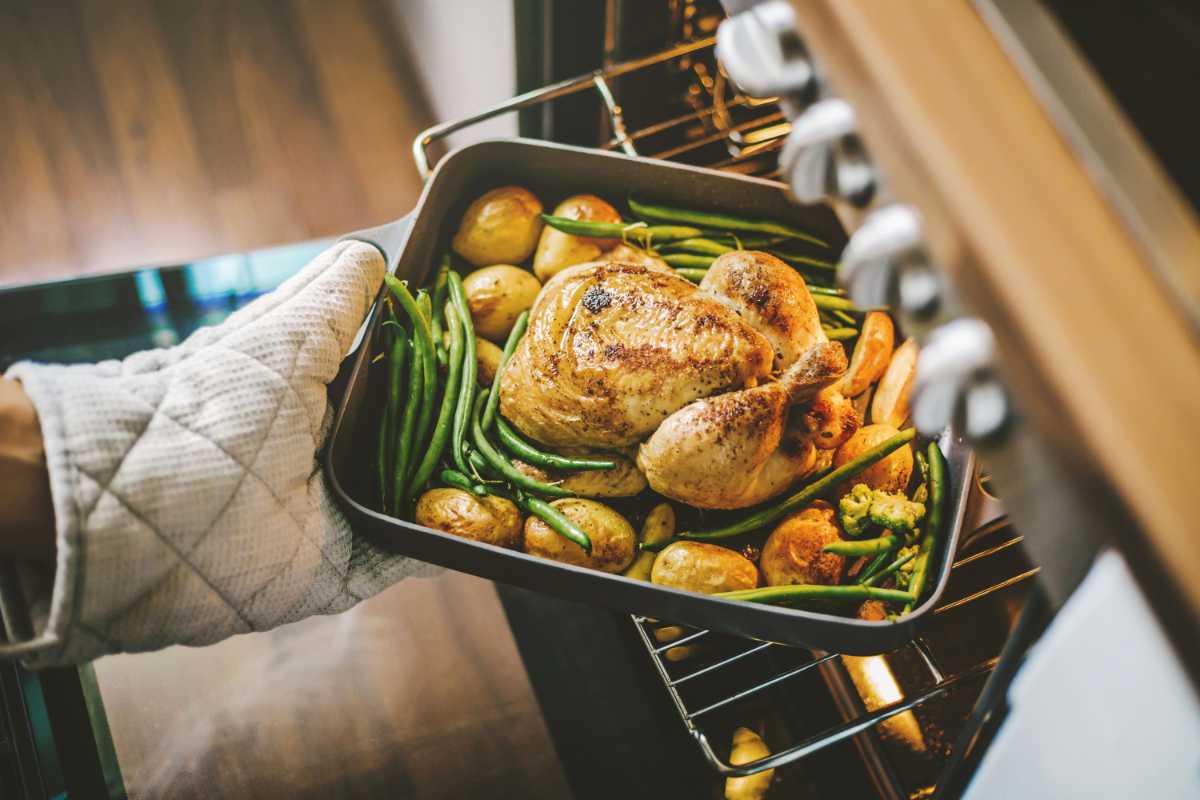The image most people have of Christmas is not one of moderation; it’s a dinner table trembling under the weight of gigantic turkeys, trifles and mountains of Christmas pudding.
It’s the time of year where we give ourselves license to eat until our bodies can take no more, continue anyway, and then snooze in front of the Queen’s Speech until the next course.
But overindulging, even just for a week or so, can potentially have long term consequences according to one top nutritionist. Research has suggested that even a short period of overeating high-fat food causes a greater risk of Type 2 diabetes – a serious condition where the body can no longer produce insulin to regulate blood sugar levels.
How can overeating affect us?
According to David Clayton, a senior lecturer in nutrition and exercise physiology at Nottingham Trent University (ntu.ac.uk), bingeing on too much high-fat food, even over a short period, can lead to a reduction in our body’s sensitivity to insulin. This is the hormone that is crucial in regulating our blood sugar levels.
“Insulin is not as effective in controlling blood sugar levels after ‘indulging’ on a high-calorie, high-fat diet,” he says. The kinds of foods that are synonymous with Christmas festivities – such as mince pies and cheese – are particularly high in saturated fat.
Rather than sugar, it’s fatty foods that are more detrimental to our ability to regulate blood sugar levels, says Clayton.
“Foods like thick cream, pork pies, crisps, sausage rolls, cheese are probably foods I’d personally avoid eating to excess,” he adds.
Why can overeating be bad?
Usually when we eat a meal we digest and absorb the nutrients, which are distributed to body tissues over the hours afterwards.
“When the ingested meal is large,” says Clayton, “it’s a much bigger task for the body and it puts greater stress on the organs that regulate these processes, particularly the pancreas – the organ that releases insulin.”
“Over time, the Beta-cells in the pancreas that release insulin get ‘worn out’, meaning they require a greater stimulus to function properly.” This means more that sugar or glucose is needed to produce the same amount of insulin.
While Clayton says we don’t know how long the effects after a single period of overfeeding last, he does believe that they could significantly add up.
Even a week of gorging on high-fat and sugary foods – particularly if the pattern occurs regularly – can tip your body into a pre-diabetic state.
“Each time you overeat, you are presenting the body with a large metabolic challenge to overcome, which might lead to microdamage in the tissues mentioned above, which might accumulate over time.”
“Oscillating periods of hyperglycaemia, when blood glucose concentrations are very high, is thought to contribute to Type 2 Diabetes diagnosis.”
How can I stop myself from overeating?
Type-2 diabetes is reversible, and there are sensible ways to offset the tendency to over-eat during Christmas.
The key is moderation, Clayton believes. While it’s fine to eat some foods high in saturated fat, it is best to do so in small quantities.
A bike ride or a boxing day run is also a great way to look after your body and prevent negative effects, as exercise increases our sensitivity to insulin for a short period of time, he says.
And, in reality, one day of overindulgence won’t cause lasting damage. There is no need to cancel your turkey. In fact, he says, turkey, a lean meat, is very nutritious.
Rhiannon Lambert, a leading Harley Street nutritionist (rhitrition.com), agrees. She believes that that it’s all about moderation. “Please remember that one day of indulgence isn’t going to completely derail your goals, health or weight, it’s those other three hundred and fifty odd days that really make the difference.”
“I love a Christmas dinner with all the trimmings” she says, “but I then tend to go a little lighter the next day.”
You may also be interested in…







































































